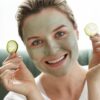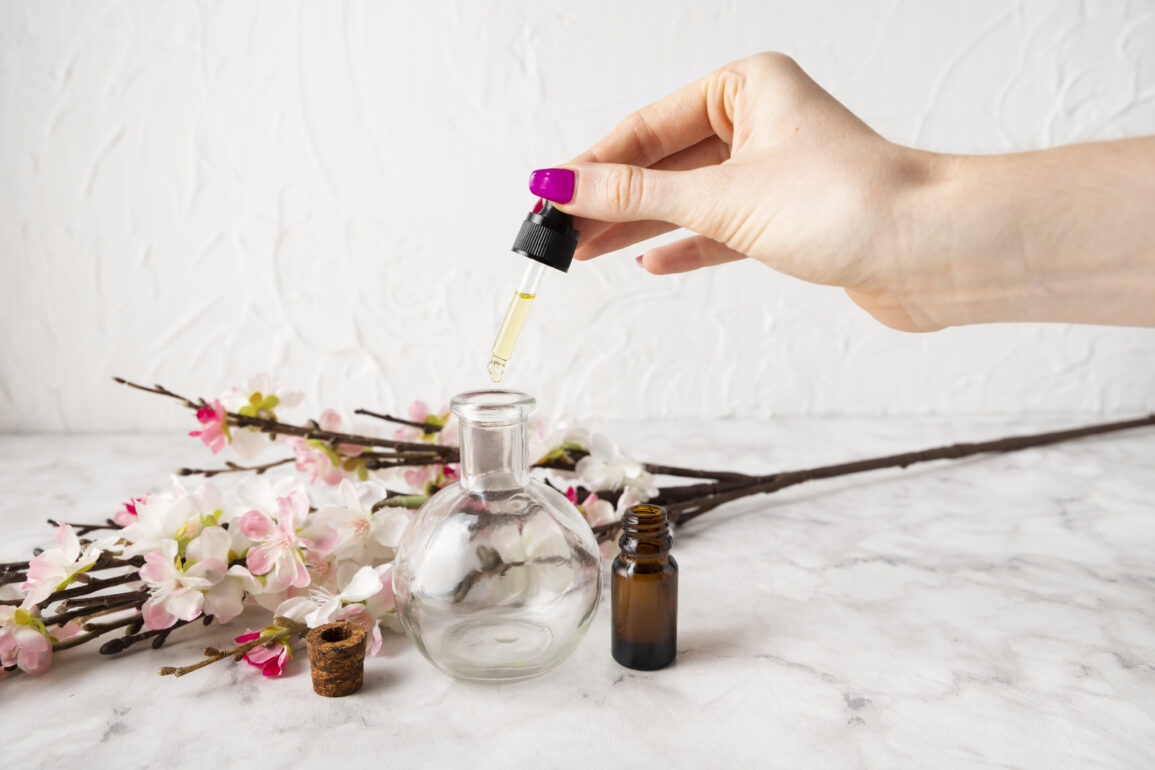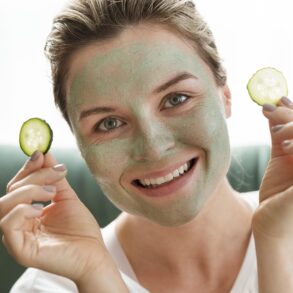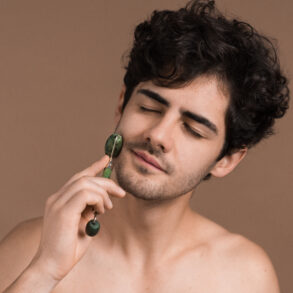In the meticulously charted cosmos of modern dermatology, retinol stands as a undisputed North Star. As a derivative of Vitamin A, its efficacy in combating acne, accelerating cellular renewal, and stimulating collagen production is supported by decades of robust clinical research.
It is the gold standard, the benchmark against which all other anti-aging and acne-fighting ingredients are measured. Yet, for all its proven power, retinol has a formidable dark side.
Its notorious side effects—the redness, peeling, irritation, and extreme photosensitivity known collectively as “retinization”—render it a prohibitive option for many.
Those with sensitive skin, rosacea, or a simple aversion to the prolonged purgatory of adjustment often find themselves seeking a gentler path to rejuvenation.
This search for gentler, yet effective, solutions has prompted a profound look back, to the ancient pharmacy of Ayurveda.
The quest for powerful natural alternatives to retinol is not about finding an exact biochemical replica, but about identifying plants that can deliver comparable, synergistic benefits—accelerated skin renewal, diminished wrinkles, improved texture, and clarified tone—through different, often more holistic, biological pathways.
This exploration into natural alternatives to retinol reveals a world of botanicals that are rich in antioxidants, vitamins, and unique compounds capable of gently encouraging exfoliation, protecting existing collagen, and promoting the skin’s innate healing processes.
For those seeking sustainable skin health without the harsh side effects, these natural alternatives to retinol offer a compelling, evidence-supported paradigm shift.
The conversation around natural alternatives to retinol is often muddled by marketing hype and a misunderstanding of mechanisms.
It is crucial to state at the outset: no natural ingredient will act with the same potent, receptor-binding force as a prescription retinoid.
However, the goal of these natural alternatives to retinol is not to replicate retinol’s aggressive action, but to achieve a similar end point—youthful, resilient, clear skin—through a more harmonious, supportive, and less disruptive approach.
Many of these natural alternatives to retinol work as adaptogens for the skin, helping it to better cope with stress and repair itself, rather than forcing a specific cellular pathway. This makes them excellent natural alternatives to retinol for long-term, maintenance-focused skincare, or for those whose skin cannot tolerate traditional retinoids.
This article will conduct a deep dive into the most potent natural alternatives to retinol derived from the Ayurvedic tradition. We will move beyond superficial claims and explore the intricate phytochemistry and molecular mechanisms of plants like Bakuchi, Rosehip, Gotu Kola, and Turmeric. We will examine how they influence collagen synthesis, modulate inflammation, protect against enzymatic degradation, and promote cellular turnover. By the end, you will have a comprehensive understanding of how to build a powerful, regenerative skincare routine centered on these remarkable natural alternatives to retinol, empowering you to make an informed choice for your skin’s health and harmony.
Understanding the Retinol Benchmark: How It Works and Why We Seek Alternatives
To fully appreciate the value of natural alternatives to retinol, we must first understand what retinol does and why its mechanism, while effective, can be problematic.
The Retinol Mechanism of Action:
Retinol, and its more potent derivatives (retinaldehyde, tretinoin, tazarotene), are retinoids. They work by penetrating the skin and converting into Retinoic Acid. Retinoic Acid then binds to specific receptors in the skin’s cells known as Retinoic Acid Receptors (RARs) and Retinoid X Receptors (RXRs). This binding acts like a key turning a lock, directly influencing gene expression. This process:
- Accelerates Cellular Turnover: It signals keratinocytes (skin cells) to proliferate and differentiate more rapidly. This pushes old, pigmented, and damaged cells to the surface faster, leading to exfoliation, a brighter complexion, and unclogged pores.
- Boosts Collagen Production: It upregulates the production of new Type I and III collagen in the dermis, the structural proteins that give skin its plumpness and firmness. It also inhibits enzymes called Matrix Metalloproteinases (MMPs) that break down existing collagen.
- Normalizes Sebaceous Activity: It helps to regulate oil production, making it beneficial for acne.
The Downsides and the Rationale for Natural Alternatives to Retinol:
The very potency of this direct genetic intervention is the source of its side effects. The dramatically accelerated cell turnover outstrips the skin’s ability to shed the old cells efficiently, leading to peeling and flaking. The inflammatory response can cause significant redness and irritation. Furthermore, by thinning the stratum corneum (the outermost layer) and making the skin more vulnerable, retinoids induce profound photosensitivity, making daily, high-level sunscreen non-negotiable.
This is the precise niche that natural alternatives to retinol are designed to fill. They offer a multi-targeted, gentler approach:
- They are Anti-Inflammatory: Unlike retinol, which can cause inflammation, many natural alternatives to retinol are inherently calming.
- They are Antioxidant-Rich: They provide a broad shield against free radicals, whereas retinol can sometimes increase oxidative stress initially.
- They Work Through Indirect Pathways: Rather than binding directly to cell receptors, they often work by creating a healthy environment for the skin to heal itself, supporting its natural processes rather than overriding them.
The following Ayurvedic plants represent the most promising and potent natural alternatives to retinol available today.
1. Bakuchi (Psoralea Corylifolia): The Closest Ayurvedic Counterpart to Retinol
If there is one Ayurvedic plant that deserves the title of a true natural alternative to retinol, it is Bakuchi, also known as Babchi. Its seeds and the oil derived from them have been used for centuries in Ayurveda and Traditional Chinese Medicine to treat vitiligo, psoriasis, and leprosy. Its modern application in cosmetics for anti-aging and hyperpigmentation is a powerful example of traditional knowledge meeting scientific validation.
- The Active Compounds: The primary bioactive compounds in Bakuchi are psoralens (psoralen, isopsoralen) and flavonoids (bakuchiol). While psoralens are known for their phototoxic properties (and must be used with extreme caution), it is bakuchiol that has garnered significant attention as a premier natural alternative to retinol.
- Mechanism of Action as a Natural Alternative to Retinol:
- Stimulates Cell Renewal (Like Retinol): Clinical studies have demonstrated that bakuchiol, much like retinol, can encourage the turnover of skin cells. It helps to shed pigmented, damaged, and keratinized cells from the surface, revealing the fresher, brighter, and more uniform skin underneath. This is a key function of retinol that makes bakuchiol a compelling natural alternative to retinol. A landmark 2018 study published in the British Journal of Dermatology compared the effects of bakuchiol and retinol over 12 weeks. The study found that both substances significantly decreased wrinkle severity and hyperpigmentation, with the bakuchiol group experiencing less skin scaling and stinging.
- Promotes Collagen Synthesis (Like Retinol): Bakuchiol has been shown to significantly boost the production of Type I and III collagen, the essential proteins that form the foundational scaffolding of the dermis. It upregulates the genes responsible for collagen production (e.g., COL1A1, COL3A1) in a manner that mirrors, though may be less potent than, retinol. By increasing the skin’s structural integrity, this natural alternative to retinol directly addresses the root cause of wrinkles and sagging.
- Manages Hyperpigmentation (Like Retinol): Bakuchiol exhibits a multi-pronged approach to pigmentation. It inhibits the activity of the enzyme tyrosinase, which is responsible for the production of melanin. Furthermore, by accelerating cellular turnover, it helps to disperse melanin clusters within the skin and shed already-pigmented cells more quickly. This dual action makes it a powerful agent against sun spots, melasma, and post-inflammatory hyperpigmentation, fulfilling another core promise of retinol and solidifying its status as a top-tier natural alternative to retinol.
- Potent Antioxidant and Anti-inflammatory (Superior to Retinol): This is where bakuchiol, as a natural alternative to retinol, may offer an advantage. It is a powerful antioxidant, neutralizing free radicals from UV exposure and pollution. More importantly, it is anti-inflammatory, helping to calm conditions like acne and rosacea, whereas retinol can often exacerbate redness and sensitivity in the short term.
- How to Use Bakuchi as a Natural Alternative to Retinol:
Bakuchi is potent. It is most safely and effectively used as:- Bakuchi Oil: Pure bakuchi oil (which contains bakuchiol and psoralens) is very strong. It should be heavily diluted (a 5-10% dilution in a carrier oil like jojoba or rosehip seed oil) and used as a serum, strictly at night. Due to the psoralen content, daily sunscreen is absolutely non-negotiable the following day.
- Isolated Bakuchiol Serums: Many modern skincare brands use isolated, purified bakuchiol. These formulations are typically well-tolerated, can be used day or night, and are an excellent entry point for those seeking a natural alternative to retinol. They often cause little to no irritation.
2. Rosehip Seed Oil: The Nutrient-Rich Regenerator and Natural Alternative to Retinol
While not exclusively Ayurvedic, Rosehip Seed Oil aligns perfectly with the Ayurvedic principle of using whole-plant extracts for their synergistic effects. It is a superstar among natural alternatives to retinol due to its unique and comprehensive nutrient profile.
- The Active Compounds: Rosehip Seed Oil’s power lies in its composition. It is naturally rich in:
- Trans-Retinoic Acid: A form of Vitamin A, albeit in much lower, gentler concentrations than prescription retinoids.
- Vitamin C (Ascorbic Acid): A critical antioxidant and co-factor for collagen synthesis.
- Omega-3, -6, and -9 Fatty Acids: Particularly linoleic and alpha-linolenic acids, which are essential for repairing the skin barrier and reducing inflammation.
- Mechanism of Action as a Natural Alternative to Retinol:
- Gentle Cell Turnover and Regeneration: The presence of natural, bio-available retinoids promotes a mild increase in cell renewal without the typical irritation associated with synthetic retinoids. This makes it one of the most accessible and well-tolerated natural alternatives to retinol for beginners or those with sensitive skin.
- Synergistic Collagen and Elastin Support: This is where Rosehip Seed Oil truly shines as a natural alternative to retinol. Vitamin A and Vitamin C work in powerful synergy. Vitamin A stimulates the fibroblast cells to produce more collagen, while Vitamin C is an essential co-factor in the enzymatic process that stabilizes and cross-links the collagen fibers. This one-two punch is highly effective for improving skin texture, firmness, and elasticity over time.
- Powerful Regeneration and Hydration: The fatty acids, particularly omega-3 and -6, are crucial for maintaining a healthy skin barrier. A strong barrier is better at retaining moisture, leading to plumper, more hydrated skin that reflects light better, giving an immediate “glow.” These same fatty acids also possess anti-inflammatory properties that help to heal scars, reduce redness, and soothe eczema.
- Antioxidant Protection: The combined antioxidant power of Vitamins A and C provides a broad-spectrum defense against environmental free radicals, protecting the skin from premature aging.
- How to Use Rosehip Seed Oil as a Natural Alternative to Retinol:
Apply a few drops of cold-pressed, organic, unrefined Rosehip Seed Oil to your face after cleansing, both morning and night. Its light texture absorbs well and makes an excellent base for makeup.
3. Gotu Kola (Centella Asiatica): The Collagen Boosting and Calming Natural Alternative to Retinol
Known as Mandukaparni in Ayurveda (“frog leaf,” due to its shape), Gotu Kola is a revered herb for its remarkable wound-healing, rejuvenating, and cognitive-enhancing properties. Its impact on the skin’s connective tissue makes it a formidable natural alternative to retinol, particularly for those concerned with firmness and scarring.
- The Active Compounds: The efficacy of Gotu Kola comes primarily from its triterpenoid saponins, most notably asiaticoside, madecassoside, and asiatic acid. These compounds are renowned for their ability to stimulate collagen synthesis.
- Mechanism of Action as a Natural Alternative to Retinol:
- Directly Stimulates Fibroblasts and Collagen Production: This is the core action that positions Gotu Kola as a powerful natural alternative to retinol. Multiple studies have shown that asiaticoside actively encourages the proliferation and activity of fibroblasts, the cells in the dermis responsible for producing collagen, fibronectin, and other components of the extracellular matrix. This leads to thicker, more resilient, and better-organized skin structure, effectively reducing the depth of wrinkles and improving skin strength—a primary benefit of retinol.
- Anti-Inflammatory and Calming (Superior to Retinol): Unlike retinol, which can be inflammatory, Gotu Kola is profoundly soothing. It downregulates pro-inflammatory markers and strengthens the skin’s barrier function. This makes it an ideal natural alternative to retinol for those with sensitive, reactive, or acne-prone skin, as it heals without irritating.
- Improves Skin Firmness and Elasticity: By boosting the structural integrity of the dermis, it provides a noticeable firming and tightening effect, combating sagging. Clinical trials have documented its ability to improve skin elasticity and reduce the appearance of striae (stretch marks).
- Enhanced Wound Healing and Scar Reduction: Gotu Kola promotes angiogenesis (formation of new blood vessels) and accelerates the wound healing process, leading to less noticeable scarring. This is particularly beneficial for healing acne lesions and minimizing post-acne marks.
- How to Use Gotu Kola as a Natural Alternative to Retinol:
Look for serums, creams, or facial oils that contain a high concentration of Gotu Kola extract, asiaticoside, or Centella Asiatica. It can be used safely both morning and night.
4. Turmeric (Curcuma Longa): The Anti-Inflammatory Antioxidant and Protective Natural Alternative to Retinol
While not a direct cell-renewal agent like Bakuchi, Turmeric (Haridra) is a crucial supporting player and a gentle natural alternative to retinol for overall skin health, radiance, and, most importantly, collagen protection.
- The Active Compound: Curcumin, a polyphenol with exceptional anti-inflammatory, antioxidant, and antimicrobial power.
- Mechanism of Action as a Natural Alternative to Retinol:
- Collagen Protection (A Different but Critical Approach): While retinol builds new collagen, Turmeric’s primary anti-aging role is to protect the collagen you already have. Curcumin potently inhibits the activation of Matrix Metalloproteinases (MMPs), which are enzymes (like collagenase) that are upregulated by UV exposure and break down collagen and elastin. By acting as a shield, Turmeric preserves the skin’s structural foundation, making it a vital, protective natural alternative to retinol.
- Potent Anti-Inflammatory Action: Chronic, low-grade inflammation is a key driver of skin aging, breaking down collagen and impairing healing. Curcumin is one of the most powerful natural anti-inflammatories known, inhibiting the NF-kB pathway, a master switch for inflammation. By calming this internal fire, Turmeric creates an environment where the skin can thrive and repair itself more efficiently.
- Fights Free Radical Damage: Curcumin is a robust antioxidant, neutralizing free radicals more effectively than Vitamin E in some assays. This prevents the oxidative stress that leads to premature aging and pigmentation.
- Manages Acne and Brightens Complexion: Its anti-inflammatory and antimicrobial properties help calm active acne, while its ability to inhibit tyrosinase contributes to a brighter, more even skin tone.
- How to Use Turmeric as a Natural Alternative to Retinol:
Incorporate Turmeric into your diet (e.g., golden milk) and use it in face masks (like Ubtan) with a carrier like honey or yogurt to avoid staining. For targeted skincare, look for serums containing curcumin or tetrahydrocurcuminoids.
5. Aloe Vera (Kumari): The Soothing Renewer and Natural Alternative to Retinol
Aloe Vera, known as Kumari (“the princess”) in Ayurveda, is a hydrating and healing plant that offers mild cell-renewing benefits, making it a supportive natural alternative to retinol.
- The Active Compounds: Polysaccharides (acemannan), auxins, and gibberellins.
- Mechanism of Action as a Natural Alternative to Retinol:
- Stimulates Fibroblasts and Collagen Production: Aloe Vera has been shown to increase collagen production and fibroblast proliferation. The polysaccharides in Aloe Vera promote the synthesis of both collagen and hyaluronic acid, accelerating wound healing and improving skin elasticity.
- Gentle Exfoliation: The natural polysaccharides and gibberellins (a plant hormone) help in gently encouraging the shedding of dead skin cells, promoting a brighter complexion without physical abrasion.
- Deep Hydration and Barrier Repair: It penetrates the skin deeply to provide hydration and contains compounds that support the repair of the skin barrier. Well-hydrated skin appears plumper, with fine lines less visible.
- How to Use Aloe Vera as a Natural Alternative to Retinol:
Apply fresh, pure Aloe Vera gel as a moisturizer or mask. For a more potent and stable effect, look for serums containing high concentrations of Aloe Vera extract.
Creating a Synergistic Skincare Routine with Natural Alternatives to Retinol
The true power of these ingredients is revealed not in isolation, but in combination. You can create a potent regimen that rivals the multi-functional effects of retinol by strategically blending these natural alternatives to retinol.
Example Protocol for an Anti-Aging, Brightening Routine:
- Morning:
- Cleanser: Gentle herbal cleanser.
- Antioxidant Serum: Vitamin C Serum (to work synergistically with and stabilize the other actives).
- Moisturizer: A cream containing Gotu Kola for firmness.
- Sunscreen: NON-NEGOTIABLE.
- Evening:
- Cleanser: Double cleanse to remove sunscreen and makeup.
- Treatment Serum: This is where you create your natural alternative to retinol blend.
- Base: 10ml Jojoba or Rosehip Seed Oil.
- Actives: Add 1ml Bakuchi Oil (for cell renewal) and a few drops of a concentrated Gotu Kola extract (for collagen boosting).
- Moisturizer: A calming cream with Aloe Vera or a pinch of turmeric.
Example Protocol for Acne-Prone, Inflamed Skin:
- Focus on: Bakuchiol (for cell turnover and acne), Gotu Kola (to heal lesions and reduce scarring), and Turmeric (to calm inflammation).
- A serum blend could include a bakuchiol serum followed by a Gotu Kola cream. A weekly Turmeric and Neem mask can provide additional anti-inflammatory and antimicrobial benefits.
Conclusion: A Gentler, Holistic Path to Youthful Skin
The emergence of these powerful natural alternatives to retinol marks a significant evolution in skincare. It is a move away from a single-ingredient, aggressive approach towards a more nuanced, holistic, and supportive philosophy. While prescription-strength retinol will always have a place for its potent, fast-acting results, these Ayurvedic plants present compelling, gentle, and effective natural alternatives to retinol.
They work in harmony with the skin’s biology, offering regenerative, anti-aging, and clarifying benefits with a significantly lower risk of irritation, peeling, and photosensitivity. By embracing Bakuchi for cell renewal, Rosehip for nutrient-rich support and gentle Vitamin A, Gotu Kola for collagen building and healing, and Turmeric for inflammation control and collagen protection, you can build a powerful, multi-targeted skincare routine centered on these remarkable natural alternatives to retinol.
For those seeking a sustainable, holistic path to radiant, resilient, and youthful skin—whether because of sensitivity, a preference for natural ingredients, or a desire for a more preventative approach—these natural alternatives to retinol provide a time-tested and scientifically supported solution. The world of natural alternatives to retinol is rich, diverse, and effective, offering a viable and gentle path for almost every skin type to achieve a healthier, more vibrant complexion.










